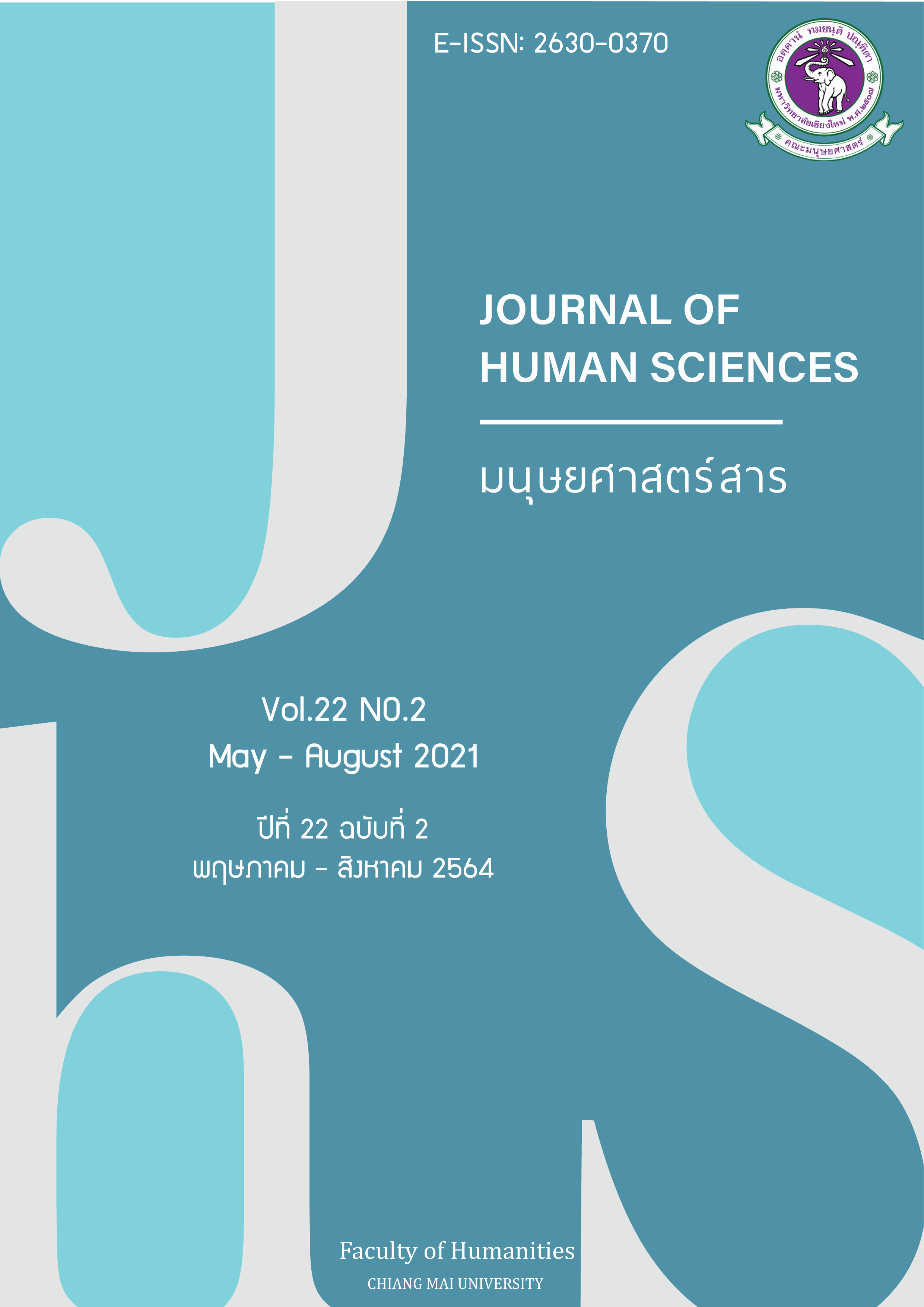ความตระหนักรู้เกี่ยวกับความเหลื่อมล้ำทางเศรษฐกิจของนักศึกษาไทยและนักศึกษาญี่ปุ่น ผ่านประสบการณ์การแลกเปลี่ยนวัฒนธรรม
Main Article Content
บทคัดย่อ
งานวิจัยนี้มีวัตถุประสงค์เพื่อศึกษาความตระหนักรู้เกี่ยวกับปัญหาความเหลื่อมล้ำเชิงเศรษฐกิจและสังคมที่มีผลต่อการพัฒนาชุมชน ของนักศึกษามหาวิทยาลัยไทยและญี่ปุ่นผ่านโครงการแลกเปลี่ยนวัฒนธรรม โดยใช้ระเบียบวิธีวิจัยเชิงคุณภาพ การสังเกตการณ์แบบมีส่วนร่วม การวิเคราะห์ด้วยภาพถ่ายและใช้แบบสำรวจรายบุคคลเพื่อนำข้อมูลมาวิเคราะห์คำสำคัญ การวิจัยพบว่านักศึกษาทั้งไทยและญี่ปุ่นตระหนักรู้ถึง “ช่องว่างของความมั่งคั่ง” โดยผ่านประสบการณ์การใช้ชีวิตในหมู่บ้านชนบทมากที่สุด
ซึ่งเปลี่ยนแนวคิดของนักศึกษาเกี่ยวกับนิยามของสังคมที่เท่าเทียม นอกจากนี้ นักศึกษายังตระหนักว่าความมั่งคั่งไม่เพียงแต่เป็นความมั่งคั่งด้านเศรษฐกิจ แต่ยังหมายถึงความมั่งคั่งที่เกิดจากความสัมพันธ์ระหว่างบุคคลอีกด้วย
Article Details
เอกสารอ้างอิง
Breunig, M. (2005). Turning experiential education and critical pedagogy theory into praxis. Journal of Experiential Education, 28(2). 106-122.
Damen, L. (1987). Culture Learning: The Fifth Dimension in the Language Classroom. N.P.: Addison-Wesley.
Diez-Medrano J., Haerpfer C., Inglehart, R., Kizilova K., Lagos M., Moreno A., Norris P., … & Welzel C., (eds.). (2014). World Values Survey: Round Four. World Values Survey Association Retrieved from www.worldvaluessurvey.org/WVSDocumentationWV4.jsp.
European Social Survey. (2013). Round 6 module on personal and social well-being - Final module in template. London: Centre for Comparative Social Surveys, City University London.
Japan SDGs Action Platform. (2018). Ministry of Foreign Affairs of Japan. Retrieved from: https://www.mofa.go.jp/policy/oda/sdgs/index.html
Johnson, D.W., & Johnson, R. T. (2009). An educational psychology success story: Social interdependence theory and cooperative learning. Educational Researcher, 38(5), 365–379.
Kammann, R., Farry, M., & Herbison, P. (1984). The analysis and measurement of happiness as a sense of well-being. Social Indicators Research, 15(2). 91-115.
Kolb, D. (1984). Experiential learning: Prentice Hall.
Nunan, D., & Richards, J. C. (Eds.). (2015). Language learning beyond the classroom.
NY: Routledge.
OECD. (2011). How's Life?: Measuring well-being. Retrieved from http://dx.doi.org/10.1787/9789264121164-en
OECD. (2013), OECD Guidelines on Measuring Subjective Well-being. Retrieved from https://www.oecd-ilibrary.org/economics/oecd-guidelines-on-measuring-subjective-well-being_9789264191655-en
OECD (2019). CO 2.2: Child poverty. OECD Family Database. Retrieved from
https://www.oecd.org/els/CO_2_2_Child_Poverty.pdf
Palacios, C. M. (2010). Volunteer tourism, development and education in a postcolonial world: conceiving global connections beyond aid. Journal of Sustainable Tourism, 18(7). 861-878.
Sustainable Development Goals [Brochure]. (2018). NY: UNDP.
Tideman, S. G. (2016). Gross National Happiness: Lessons for Sustainability Leadership, South Asian Journal of Global Business Research, 5(2). 190–213.
UNU-IHDP. (2012). Inclusive wealth report 2012: measuring progress toward sustainability: Cambridge University Press.
Van den Scott, L. K. (2018). Visual methods in ethnography. Journal of Contemporary Ethnography, 47(6). 719-728. Retrieved from https://doi.org/10.1177%2F0891241618806972
World Bank. (2016). Principles and Practice in Measuring Global Poverty. Retrieved from https://www.worldbank.org/en/news/feature/2016/01/13/principles-and-practice-in-measuring-global-poverty
World Economic Forum. (2012). The Global Competitiveness Report 2012-2013. Geneva: World Economic Forum. Retrieved from http://reports.weforum.org/global-competitiveness-report-2012-2013/
World economic outlook databases October 2012. (2012). International Monetary Fund. Retrieved from https://www.imf.org/en/Publications/WEO/Issues/2016/12/31/Coping-with-High-Debt-and-Sluggish-Growth


